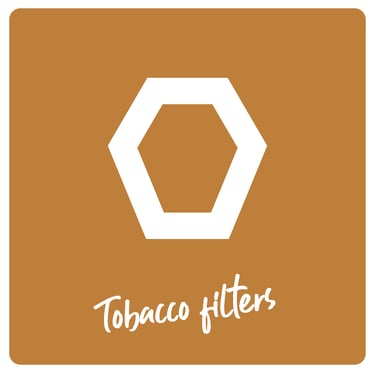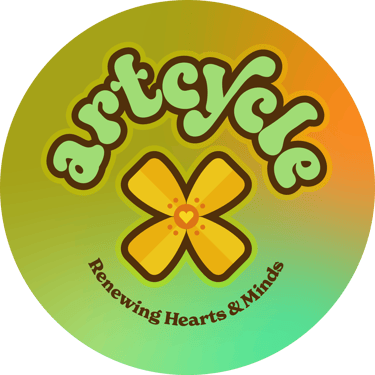Free education resources
Print-ready PDF artwork for your in-house recycling program

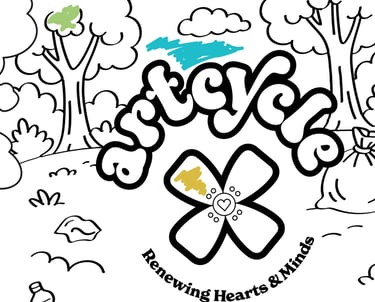
Free Materials Guide Poster
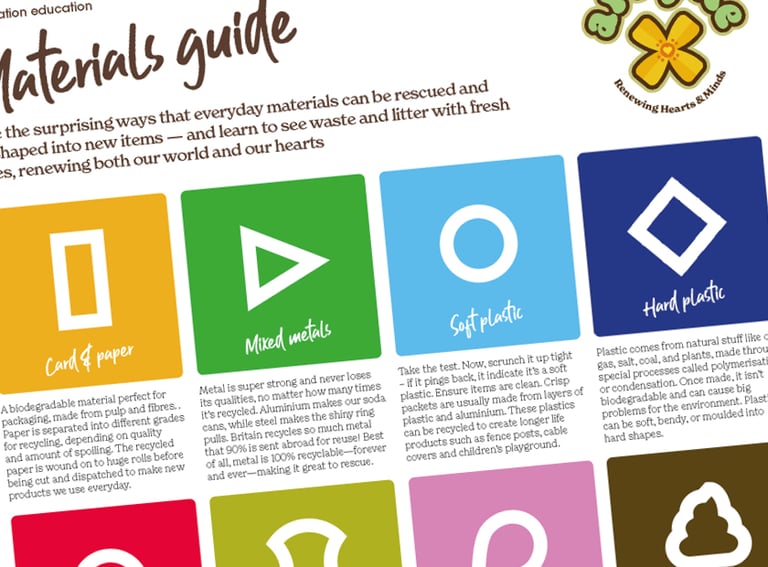

Bright colours, symbols, and words make recycling easy! This A3 wall guide shows how old materials can turn into new things.
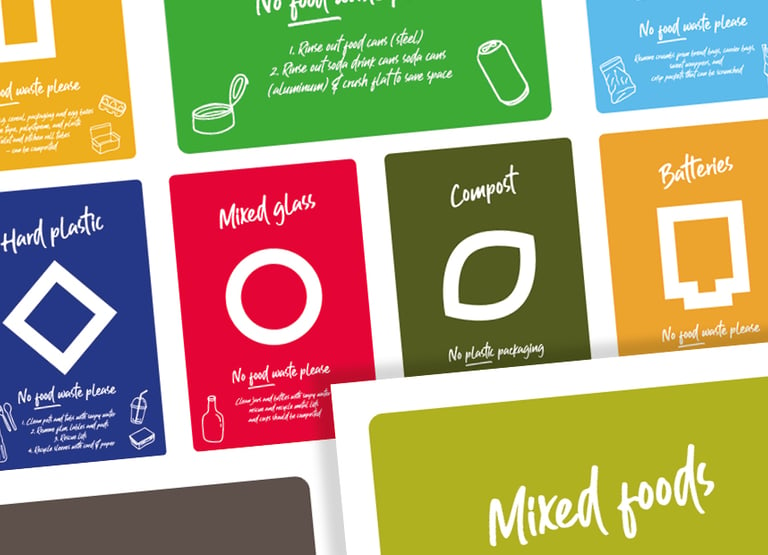

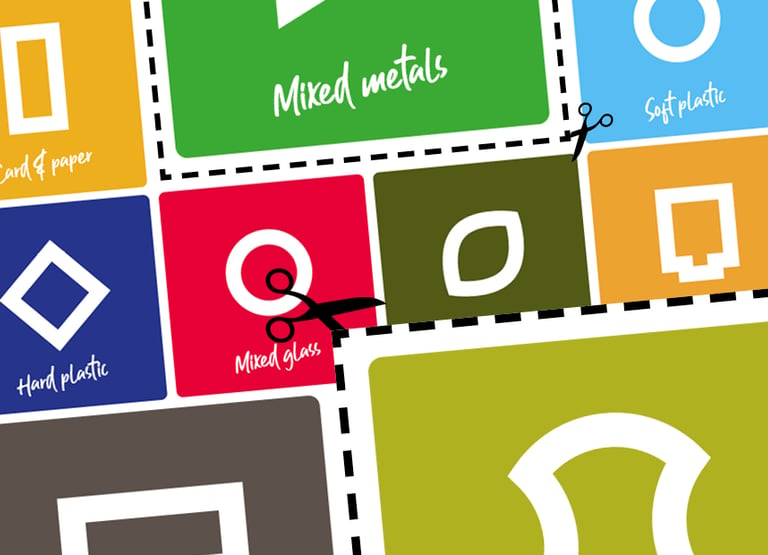

Free Printable A4 Signs x9
Make rescuing waste child's play with bold colour, symbols, images and words. Equip your bin space with easy printable posters.
Putting the wrong stuff in the recycling bin can ruin the whole load. Manage your own separation system. Simply print, cut, and stick.
Free Printable A4 Labels x9
Introduction Brochure


PDF A4 mini overview to Artcycle and our community services and what the educational club and school visits will involve for you.




Certificate of achievement
Well done! Reward your students in recognition of amazing efforts and dedication to rescuing and reshaping materials into beautiful crafts.
Say hello to our friendly Botfish! Print out a copy and bring it to life by colouring and decorating your very own 2D poster.
A4 colouring activity
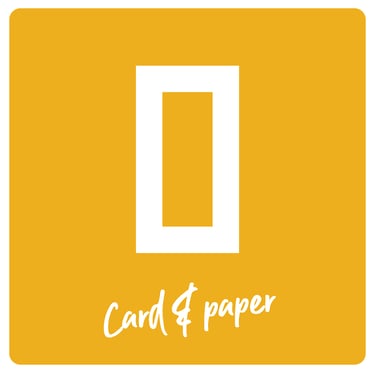

Card and paper
A biodegradable material perfect for packaging, made from pulp and fibres. . Paper is separated into different grades for recycling, depending on quality and amount of spoiling. The recycled paper is wound on to huge rolls before being cut and dispatched to make new products we use everyday.
Mixed metals
Metal is super strong and never loses its qualities, no matter how many times it’s recycled. Aluminium makes our soda cans, while steel makes the shiny ring pulls. Britain recycles so much metal that 90% is sent abroad for reuse! Best of all, metal is 100% recyclable—forever and ever—making it great to rescue.
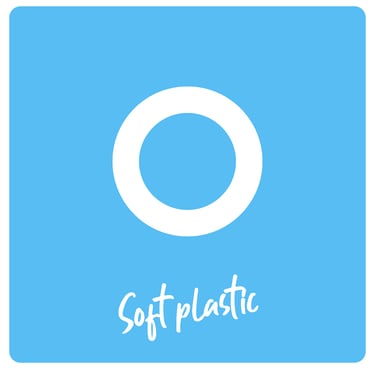

Soft plastic
Take the test. Now, scrunch it up tight – if it pings back, it’s a useful indicator it’s a soft plastic. Ensure items are clean prior to recycling to avoid contamination. The new plastics will be recycled to create packaging and even longer life products such as fence posts, cable covers and children’s slides.


Hard plastic
Plastic comes from natural places from deep under the ground like oil, gas, salt, coal, and plants, made through special processes called polymerisation or condensation. Once made, it isn’t biodegradable and can cause big problems for the environment. Plastic can be soft, bendy, or moulded into hard shapes.
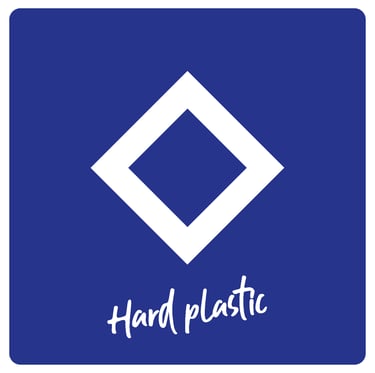

Materials guide
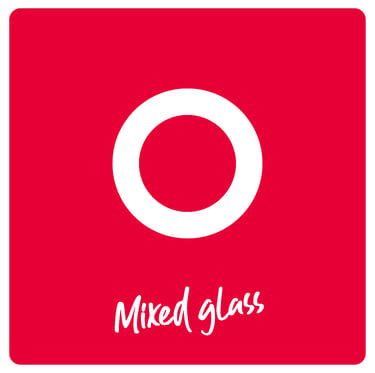

Mixed glass
Glass is a shiny, hard material used in windows, mirrors, jars, and bottles. It’s made by melting sand with soda and lime, then cooling it quickly. Glass is endlessly recycled with no loss of quality, which make it a great way to save energy from mining whilst more importantly preserving the planet’s raw materials.
Mixed foods
Anaerobic digestion is like nature’s recycling machine. Inside a closed tank, tiny microbes munch on food scraps and animal poo without any oxygen. As they eat, they make methane gas that can power cars, heat homes, or make electricity. What’s left turns into a
rich fertiliser that helps farmers grow more food.


Bubble gum
Old bubblegum doesn’t have to be rubbish! It can be cleaned, mixed with recycled plastics, and turned into tough new things like coffee cups, boots, playground gear, and even shoe soles. Bright pink gum bins help keep pavements tidy while saving councils money. Every piece recycled means fewer sticky splodges.
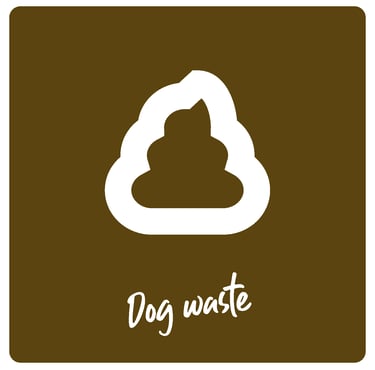

Dog waste
Even smelly dog poo can be recycled! In an anaerobic digester, microbes break it down to make methane fuel and rich fertiliser. You can compost at home too by mixing dog poo with grass clippings, food scraps, or even sawdust to feed the microbes. Their enzymes get to work, turning waste into safe, healthy soil with care and a little caution!


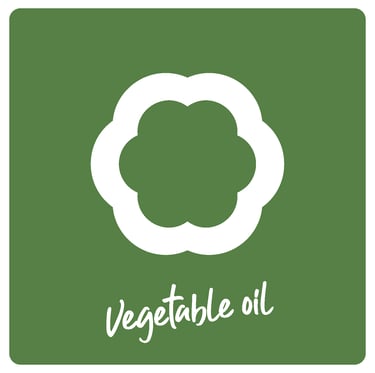

Vegetable oil
Old cooking or engine oil doesn’t have to be wasted. Once it’s cleaned, it can be turned into polish, cleaners, cosmetics, animal feed, or even biodiesel fuel. Some oils and food scraps can also break down to make gas, which can power homes and cars while cutting down on pollution.
Tobacco filters
Did you know cigarette butts are the most littered item in the world? They might look like cotton, but they’re actually made from plastic fibres that don’t break down. Ash and tobacco can be composted, while the filters can transformed into mosquito-repelling products, toys, or stuffing for cushions.


Textiles
Synthetic fabrics, like polyester, shed microplastics that pollute the environment, so they need special handling. Natural fabrics like wool, cotton, and linen are safe for compost. Rags can be turned into building materials, scraps are great for art and zips and buttons can be reused.
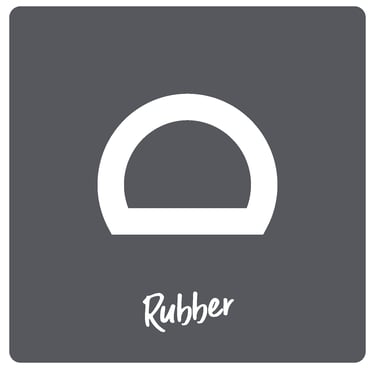

Rubber
Car tyres are made from rubber, steel, and other materials. Instead of throwing them away, tyres can be broken down, cleaned, and ground into tiny pieces. These pieces can then be made into new things, like tyres again, bricks, fuel, speed bumps, or even soft playground floors for kids to play on safely.
